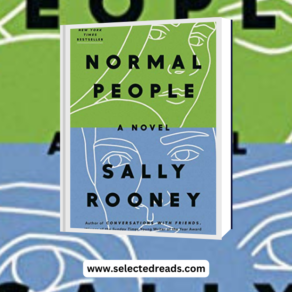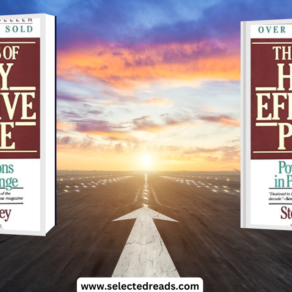One of the most insightful reads I’ve recently indulged in is “The Person You Mean to Be: How Good People Fight Bias” by Dolly Chugh. At its heart, the book delves into the intricacies of unconscious bias and the impact it has on our daily interactions, relationships, and decisions.
Chugh beautifully presents the concept of the “good-ish” person. Instead of trying to be “good” and invariably falling short due to our inherent biases, she suggests striving to be “good-ish” — a continuous learner and always in the process of improving. This simple yet profound shift in perspective, as Chugh demonstrates, can lead to more genuine self-improvement and understanding of others.
Drawing on a wealth of research in social psychology, Chugh highlights how biases, often deep-rooted and unnoticed, manifest in our daily lives. These biases aren’t confined to just race or gender; they span across multiple dimensions of human interaction. She explains that recognizing these biases isn’t an indictment of our character, but an invitation to grow and understand better.
What’s particularly impressive about Chugh’s approach is her actionable advice. The book isn’t just a theoretical exploration; it offers tangible steps that individuals can take to confront and combat biases, be it in the workplace, social circles, or personal reflections. Her belief in the power of incremental change resonates deeply, showing that consistent, small steps can lead to a more inclusive and understanding society.
Having enjoyed reading “The Person You Mean to Be,” it’s clear that Dolly Chugh has provided a valuable roadmap for anyone looking to navigate the complexities of bias in today’s world. It’s a call to action, a plea for introspection, and a guide to becoming the best version of ourselves — authentically “good-ish.”
For similar books check our our Self-help Books section
The Person You Mean to Be Quotes
Here are some stand-out quotes from the book The Person You Mean to Be:
1. “Hell is not a place where we ourselves suffer. Hell is where you watch people you care about suffer and do nothing about it.”
2. “Believing in diversity and inclusion does not mean we are building diverse and inclusive organizations.”
3. “The less we worry about being good people, the better people we will be.”
4. “We redefine what it means to be a good person as someone who is trying to be better, as opposed to someone who is allowing themselves to believe in the illusion that they are always a good person.”
5. “While no individual action is a revolution, the sum of their daily efforts leads to real revolution.”
6. “Media acts as both windows and mirrors.”
7. “Equality says we treat everyone the same, regardless of headwinds or tailwinds. Equity says we give people what they need to have the same access and opportunities as others, taking into account the headwinds they face, which may mean differential treatment for some groups.”
8. “Words are less important than intentions, and if your intention is to be supportive, silence is rarely the way to go.”
9. “Nobody is born woke.”
10. “If you are in the sun and I am in the rain, why is it divisive for me to point out this difference? What is really divisive is telling someone who is standing in the rain that it is not raining.”
How to Fight Bias: Lessons from the Person You mean to Be
“The Person You Mean to Be: How Good People Fight Bias” by Dolly Chugh is a profound exploration of unconscious bias and offers insights into personal growth and societal change. Here are some key lessons from the book:
- The “Good-ish” Perspective: Striving for perfection often leads to disappointment or denial. Instead of aiming to be perfectly “good,” it’s more realistic and productive to aim to be “good-ish” – someone always in the process of learning and growing.
- Understanding Unconscious Bias: Bias isn’t just blatant prejudice. Often, it’s a subtle, unconscious process influenced by societal norms and personal experiences. Recognizing this can help in addressing it.
- Bias is Pervasive: Biases aren’t confined to just race or gender. They can manifest in various dimensions of life, including age, socio-economic status, educational background, and more.
- Self-Reflection is Key: Continual self-reflection and acknowledgment of one’s biases is crucial. Recognizing them isn’t a sign of failure but an essential step towards growth.
- Constructive Guilt: Instead of being paralyzed by guilt when confronting biases, use it as a motivator to change behaviors and mindsets.
- Power of Incremental Change: Huge changes often start with small steps. Incremental efforts, when consistent, can lead to significant shifts in understanding and behavior.
- Seek Discomfort: Growth often comes from discomfort. Putting oneself in unfamiliar situations can be a powerful way to challenge and overcome biases.
- Listen Actively: Truly listening to the experiences and perspectives of others, especially marginalized groups, can offer profound insights into one’s biases.
- Challenge Systems, Not Just Individuals: While personal change is essential, it’s equally crucial to challenge and change the biased systems and structures in society.
- Education and Action: Learning about biases isn’t enough. It’s vital to take tangible actions to combat them in daily life.
Chugh’s book serves as a valuable guide in understanding and navigating the intricate maze of biases. The lessons emphasize personal responsibility, growth, and the importance of collective action.





